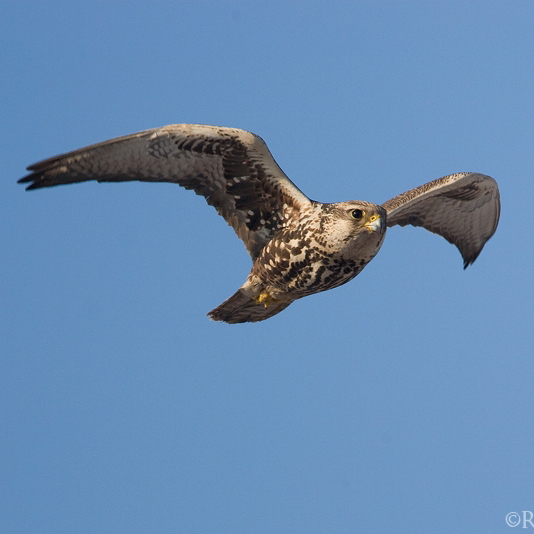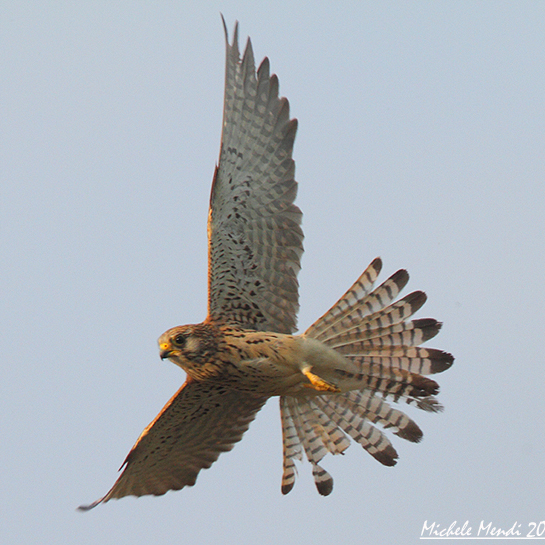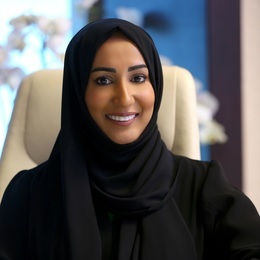
H. E. Dr. Shaikha Salem Al Dhaheri, Secretary General of Environment Agency - Abu Dhabi
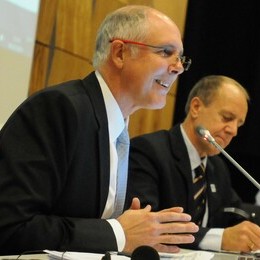
We are celebrating the first decade of a rich and extremely productive collaboration between CMS and the United Arab Emirates. Environment Agency – Abu Dhabi’s hosting of CMS Office – Abu Dhabi has been critical to the Convention’s mission of promoting international cooperation through the Dugong and Raptors MOUs across the vast range of the migratory animals we work on. EAD’s generous sustained support is one of the many ways the UAE has demonstrated its leadership on migratory species conservation over the years. We are very grateful to EAD and the UAE our host country, very excited about the future and looking forward to deepening our partnership with the country in the years ahead.
Lyle Glowka, Executive Coordinator, CMS Office — Abu Dhabi
Download English pdf version.
Download Arabic pdf version.
Hosting CMS Office - Abu Dhabi Advances UAE’s Conservation Tradition
 CMS Office – Abu Dhabi oversees the implementation of two specialized international agreements under the CMS framework: the CMS Dugong Memorandum of Understanding (Dugong MOU), which came into effect in October 2007, and the CMS Raptors MOU, effective from November 2008. The Office also coordinates activities addressing common threats to migratory species of national and regional importance and promotes CMS and its agreements in the West Asian and North-West Indian Ocean regions.
CMS Office – Abu Dhabi oversees the implementation of two specialized international agreements under the CMS framework: the CMS Dugong Memorandum of Understanding (Dugong MOU), which came into effect in October 2007, and the CMS Raptors MOU, effective from November 2008. The Office also coordinates activities addressing common threats to migratory species of national and regional importance and promotes CMS and its agreements in the West Asian and North-West Indian Ocean regions.



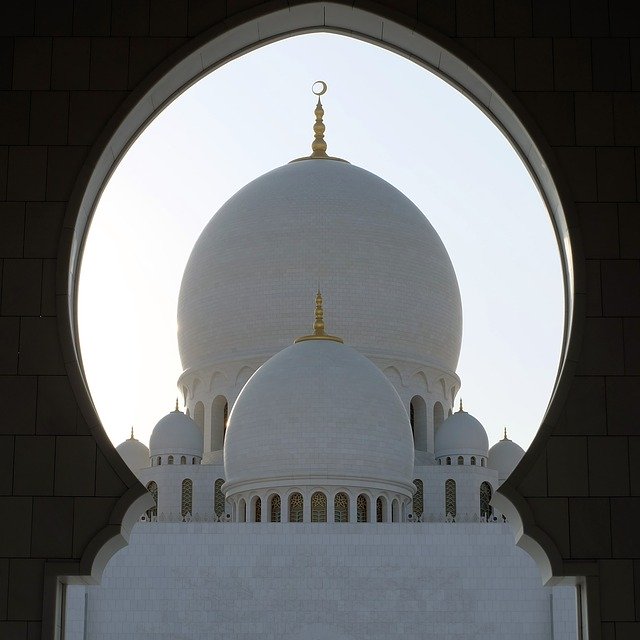
Long-Term Commitment, Mutual Trust and Numerous Synergies Form Basis of Fruitful CMS-EAD Partnership
Read more. Download English pdf or Arabic pdf version.
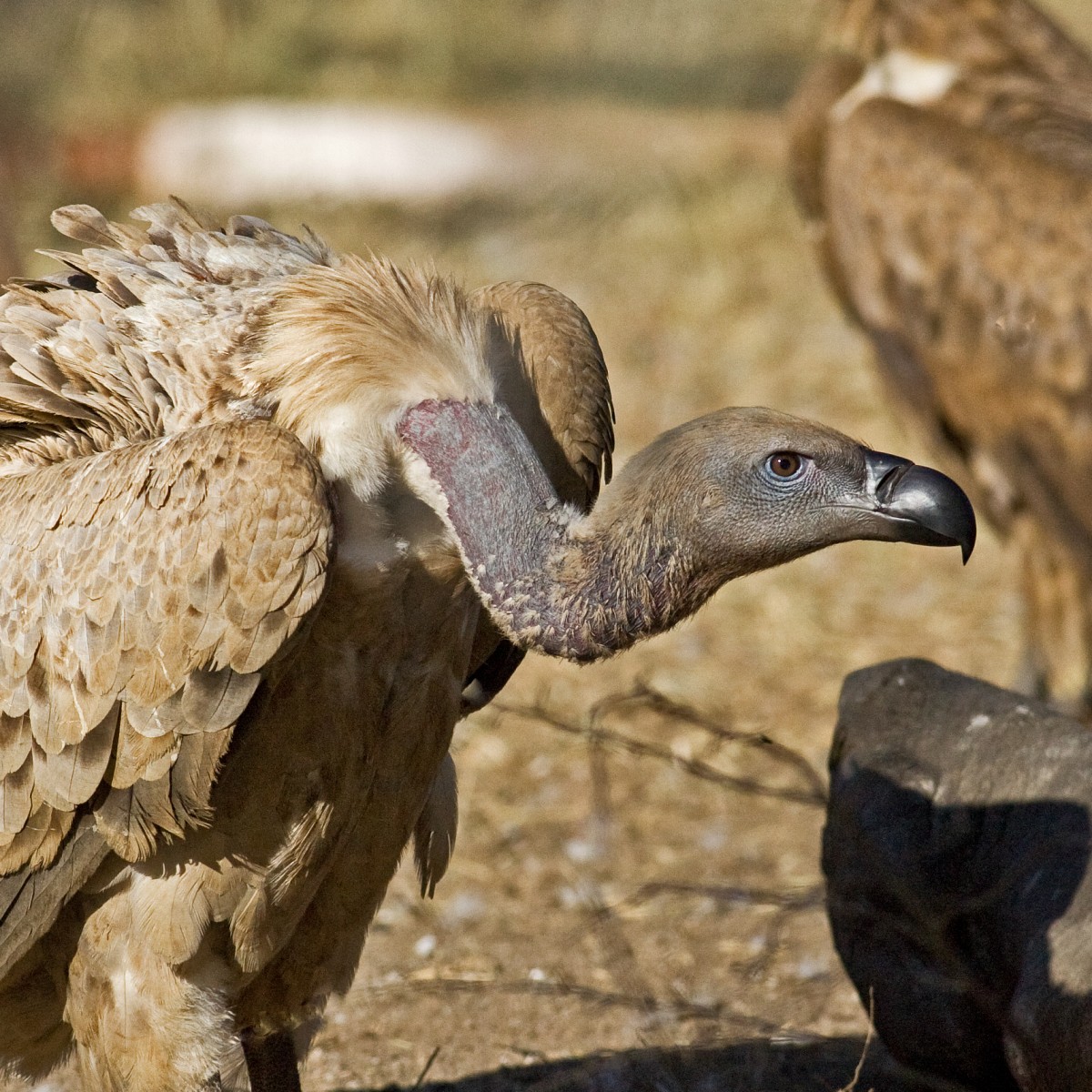
We Need Vultures and They Need Us: Urgent International Action to Save Vultures
Read more or download pdf version here

Dugong and Seagrass Conservation Project Yields Tangible Results in Eight Countries and Paves the Way for Further International Investment
Read more or download pdf version here
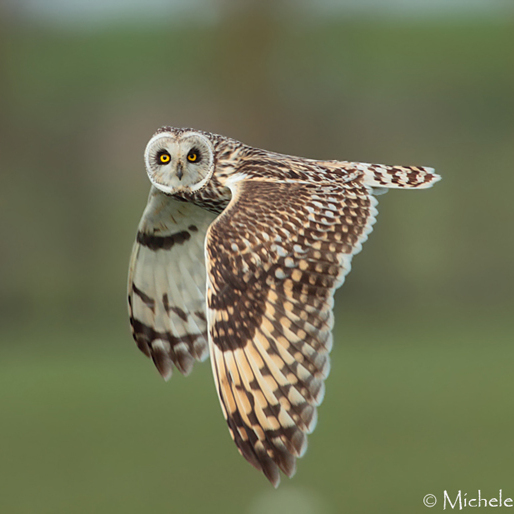
Technical Advisory Group Wins Some Major Victories for Endangered Raptors
Read more or download pdf version here

Dugong and Seagrass Research Toolkit Helps Conservationists in Diverse Range States
Read more or download pdf version here
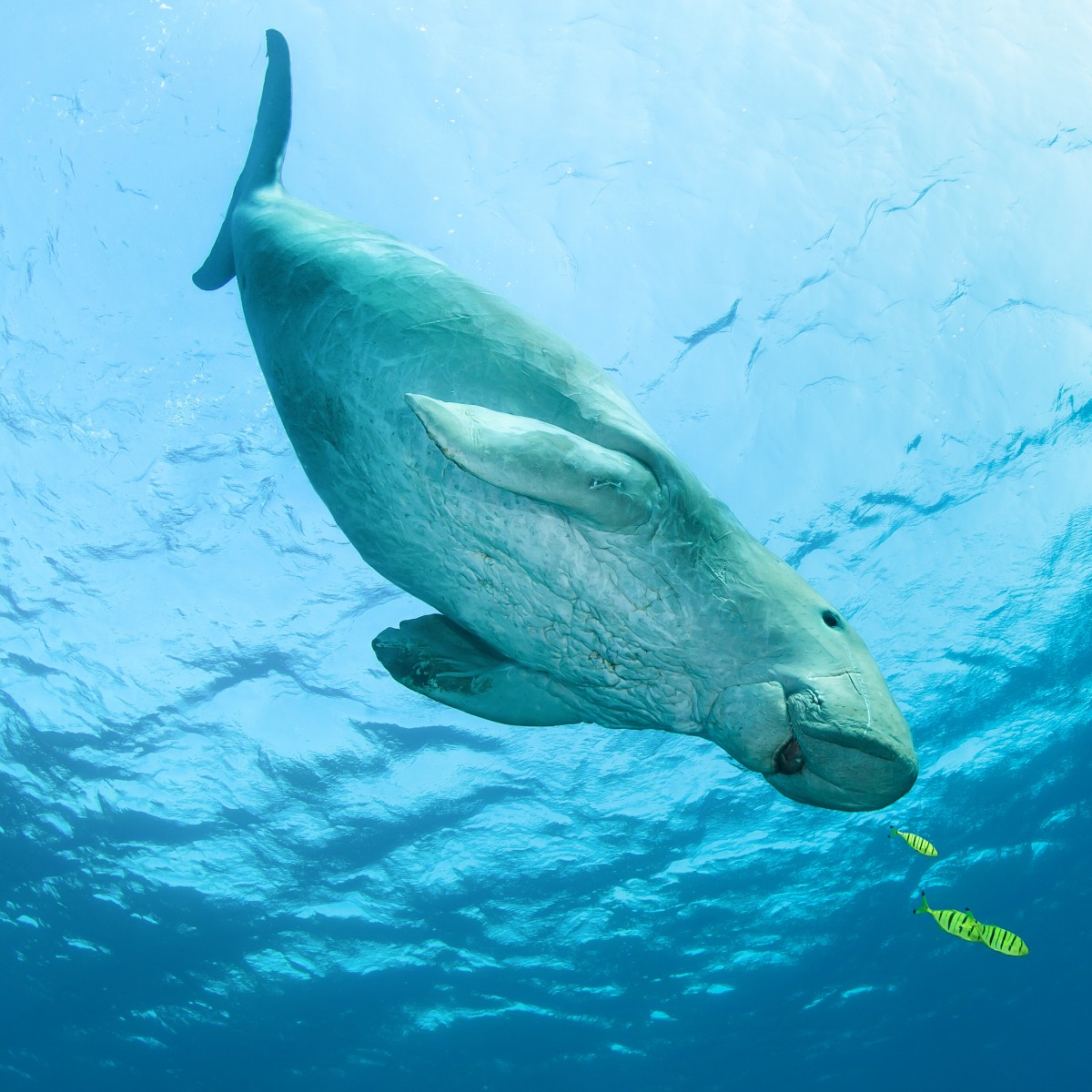
Dugong Questionnaire Yields Unprecedented Insights into Species Distribution and Abundance
Read more or download pdf version here
Download English pdf version here.
Download Arabic pdf version here.
PRESS RELEASE
Bonn/Abu Dhabi, 16 December 2019 – The Convention on Migratory Species (CMS) and the United Arab Emirates (UAE) are celebrating a decade of conservation achievements in the country and abroad.
Established on 12 October 2009, CMS Office - Abu Dhabi, is hosted by Environment Agency – Abu Dhabi (EAD), and serves as the only regional hub for the Convention outside its headquarters in Bonn, Germany.
The office is home to two CMS international agreements — the Dugong MOU and the Raptors MOU – and has successfully led a number of initiatives to protect dugongs, migratory birds of prey and other threatened migratory species. The scope of the work has been varied: developing specific scientific tools to better study endangered animals, supporting grassroots initiatives in least developed countries, and facilitating adoption of strategic species protection policies at high-level international fora.
The milestones of the partnership were celebrated today at a ceremony in Abu Dhabi, attended by a number of UAE and foreign dignitaries.
Highlighting the importance of biodiversity conservation in the UAE, His Excellency Dr Thani bin Ahmed Al Zeyoudi, Minister of Climate Change and Environment, said: “Due to its location, the UAE represents a safe haven for multiple species of migratory birds that visit the country every year to benefit from the warm weather and the variety of food sources. The UAE is also considered a common territory for bird breeding.”
He added: “The UAE’s islands and wetlands provide important habitats for migratory birds. These include eight sites that have been designated by the Ramsar Convention as Wetlands of International Importance. These protected areas were established to reduce pressure on migratory birds, conserve biodiversity, and promote environmental sustainability in line with the objectives of the global Strategic Plan for Migratory Species 2015-2023 and the UAE Vision 2021.”
Her Excellency Dr. Shaikha Salem Al Dhaheri, Secretary General of EAD, said: “The UAE has long regarded species conservation as an important part of its strategy to protect our natural and cultural heritage. Supporting this strategic conservation partnership was a great step in the country’s long tradition of protecting the natural environment, which can be traced back to the UAE’s founder, Late Sheikh Zayed bin Sultan Al Nahyan.”.
“Collaborating with CMS has provided Abu Dhabi and the UAE with the opportunity to demonstrate our conservation commitment globally, and successfully engage with other countries under the auspices of a multilateral framework affiliated with the United Nations,” said Dr. Al Dhaheri.
Some of the achievements of CMS Office - Abu Dhabi include:
- an interactive online tool for dugong researchers, co-developed with EAD and top international experts. Launched in March 2017, the Dugong and Seagrass Research Toolkit has so far been used by researchers and conservation managers in over 100 countries.
- a standardized questionnaire, developed in 2012, which has identified fishery pressures and potential new conservation hotspot areas in at least 18 countries, covering most of the dugong’s habitat range. With nearly 8,000 responses, the data set created is one of the most comprehensive in the world.
- a flagship USD 6.0 million Dugong and Seagrass Conservation Project, supported by the Global Environment Facility, building capacity for community-based conservation projects in eight key dugong Range States: Indonesia, Madagascar, Malaysia, Mozambique, the Solomon Islands, Sri Lanka, Timor-Leste, and Vanuatu. Thousands of people have been engaged via 43 different conservation projects.
- the CMS Saker Falcon Global Action Plan, highlighting the conservation priorities across the species’ range and proposing a clear management framework for sustainable use.
- the CMS Multi-Species Action Plan to Conserve African-Eurasian Vultures, an international roadmap for the recovery and conservation of 15 species of migratory African-Eurasian vultures.
- Support for practical conservation actions on the ground for specific species such as the Egyptian Vulture and Amur Falcon.
“Over the past decade, we have achieved a lot for dugongs, birds of prey, and other migratory species, along with the human communities that share and rely on them. EAD’s generous sustained support on behalf of the Government of the UAE is one of the many ways the country has demonstrated its leadership on migratory species conservation over the years, and the CMS-EAD partnership has been a cornerstone to everything that has been achieved,” said Mr. Lyle Glowka, Head of CMS Office – Abu Dhabi.
The history and achievements of the CMS-EAD partnership have been outlined on a dedicated website.
The dugong is a large, slow-moving animal which feeds on seagrass. The calm, shallow waters along the Abu Dhabi coastline offer the perfect environment for this marine mammal and are home to an estimated 3000 individuals, part of the second-largest dugong population in the world, shared with three other Gulf countries. According to the IUCN Red List of Threatened Species, dugongs are vulnerable to extinction with the global population declining by 30% in the last 60 years.
Birds of prey, especially some species of falcons, are also very important for the UAE, not only in terms of conservation value but also because of their special role in traditional falconry. Unfortunately, many raptors species are under increasing pressure with many vulnerable to extinction from human threats.
Notes for Editors
About the Convention on the Conservation of Migratory Species of Wild Animals (CMS):
CMS is the only global biodiversity-related treaty specializing in the conservation and sustainable use of a wide array of terrestrial, aquatic and avian migratory species, their habitats and migration routes. Parties to the Convention work individually and cooperatively to ensure favourable conservation status for migratory species across their ranges. At present, there are 130 Contracting Parties to the Convention. The CMS Secretariat’s headquarters are located in Bonn, Germany..
www.cms.int
About CMS Office - Abu Dhabi:
Established in 2009, CMS Office – Abu Dhabi comprises the Coordinating Unit of the Raptors MOU, alongside the Secretariat of the Dugong MOU and is hosted by Environment Agency – Abu Dhabi, on behalf of the Government of the United Arab Emirates. The vision and long-term support of the UAE, combined with the rich scope of a United Nations forum, are supporting the conservation of raptors, Dugong and other migratory species, as well as promoting the well-being of associated human communities, to contribute towards achieving the United Nations Sustainable Development Goals.
About Environment Agency - Abu Dhabi (EAD):
The Environment Agency - Abu Dhabi (EAD) was established in 1996 to preserve Abu Dhabi’s natural heritage and to raise awareness about environmental issues. EAD is Abu Dhabi’s environmental regulator and advises the government on environmental policy. It works to create sustainable communities, and protect and conserve wildlife and natural resources. EAD also works to ensure integrated and sustainable water resources management, to safeguard clean air and to minimize climate change and its impacts.
www.ead.ae
For more information please contact:
Established in 2009, the office is hosted by Environment Agency – Abu Dhabi, on behalf of the Government of the United Arab Emirates (UAE) and operates under the aegis of the United Nations Environment Programme.
تم تأسيس مكتب المعاهدة في أبوظبي في عام 2009 باستضافة هيئة البيئة - أبوظبي،
نيابة عن حكومة الإمارات العربية المتحدة، ويعمل تحت رعاية برنامج الأمم المتحدة للبيئة.
The Dugong MOU aims to promote internationally coordinated actions to ensure the long-term survival of dugongs and seagrass habitats throughout their extensive range.
تهدف مذكرة التفاهم حول المحافظة على وإدارة أبقار البحر وموائلها ضمن مدى انتشارها لتحفيز القيام بإجراءات منسقة دوليًا لضمان البقاء طويل الأجل لأبقار البحر وموائلها من الأعشاب البحرية عبر مدى انتشارها الواسع.
تهدف مذكرة الطيور الجارحة لدعم وتنسيق الأنشطة الدولية للحد من تراجع اعداد الطيور الجارحة المهاجرة وتحسين حالة الحماية الخاصة بها عبر منطقة أفريقيا وأوروبا وآسيا.


Environment Agency – Abu Dhabi received a CMS Champion Plus Award for its commitment towards conservation of birds of prey in Africa and Eurasia for the period 2015-2019. Since 2009, Environment Agency – Abu Dhabi, on behalf of the Government of the United Arab Emirates, has hosted CMS Office – Abu Dhabi including the Coordinating Unit of the CMS Memorandum of Understanding on the Conservation of Migratory Birds of Prey in Africa and Eurasia.


Environment Agency – Abu Dhabi received a CMS Champion Plus Award for its commitment towards conservation of dugongs and their habitats for the period 2015-2019. Since 2009, Environment Agency – Abu Dhabi, on behalf of the Government of the United Arab Emirates, has hosted CMS Office – Abu Dhabi including the Secretariat to the CMS Memorandum of Understanding of Dugongs and their Habitats throughout their Range.





